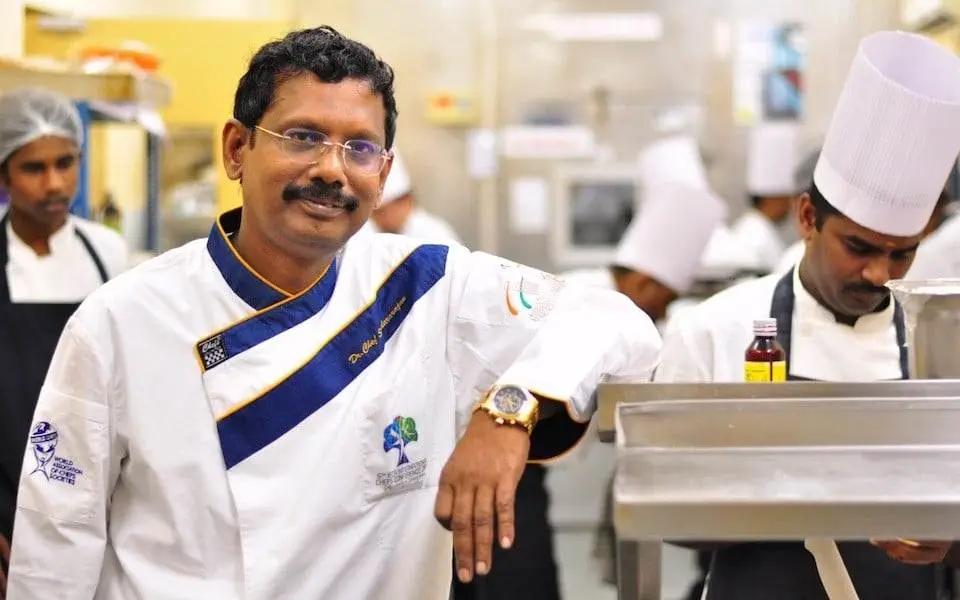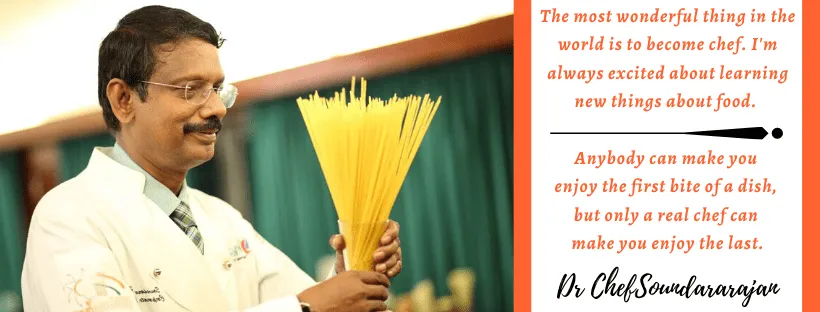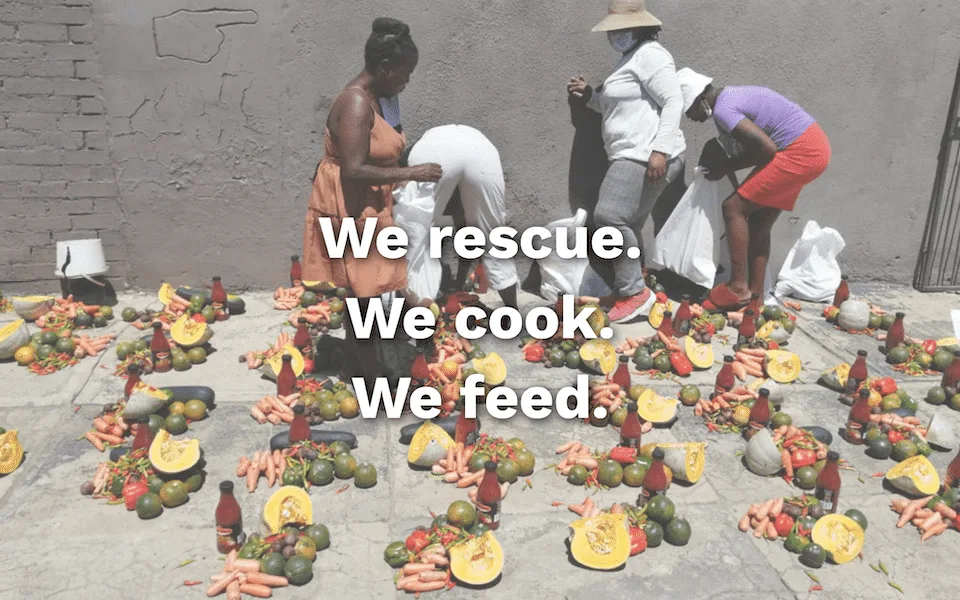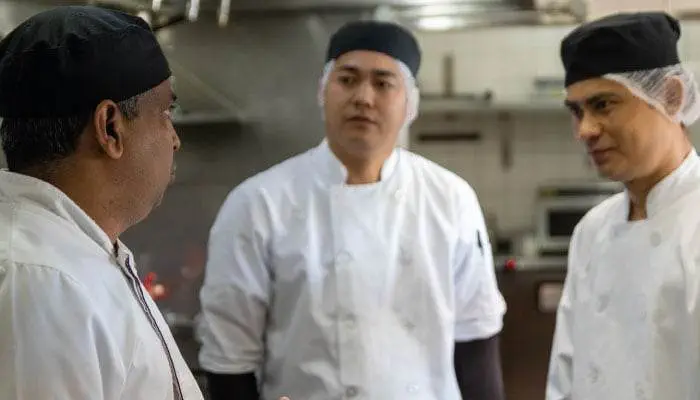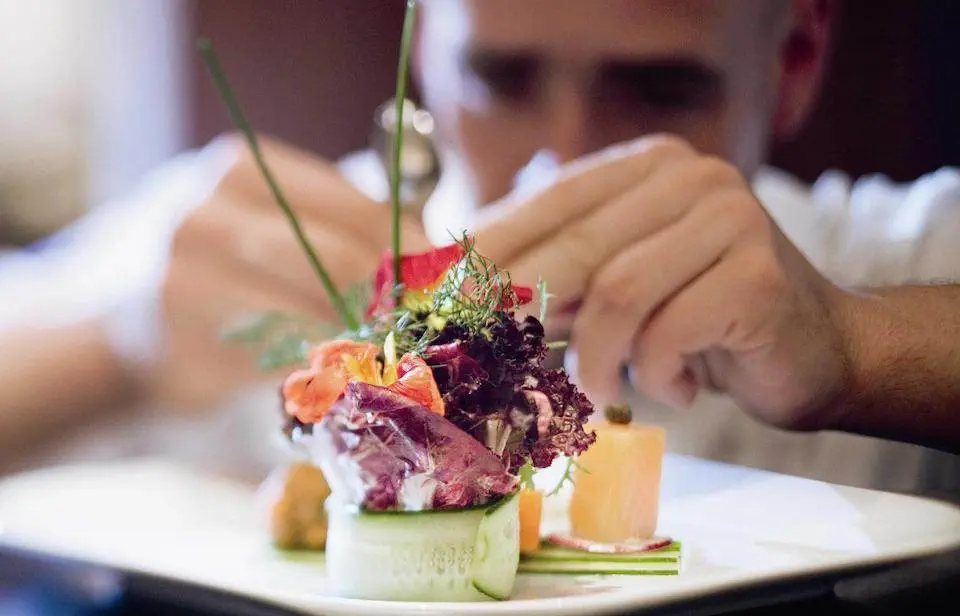Mark Your Calendars: International Chefs Day is October 20th!
Each year on October 20th, we celebrate International Chefs Day. Since its creation, by the Late Chef Dr. Bill Gallagher in 2004, Worldchefs has committed to using International Chefs Day to celebrate our noble profession, always remembering that it is our duty to pass on our knowledge and culinary skills to the next generation of chefs with a sense of pride and commitment to the future.
Over the past years, Worldchefs has partnered with Nestlé Professional to teach children around the globe about the importance of healthy eating by hosting fun-filled workshops worldwide.
In 2020, many Chefs around the globe did not have the opportunity to have events due to COVID-19 and created short videos to share with children on social media, which became a big hit. The videos allowed us to reach approx.112,000 children. Unfortunately, uncertainty is still around many of us, but we will continue to reach as many children as possible either in-person at a workshop or through online learning and social media. To help, Nestlé Professional has made fantastic adaptions to the toolkit to make online learning easy and accessible.
As Chefs, we are all paying closer attention towards keeping ourselves and others healthy. Having a strong immune system and eating “stress-busting” foods will help us through these challenging times.
We can also help our children, the Worldchefs way by working together in Preparing Children for a Healthy Life. International Chefs Day will once again promote the theme: Healthy Food for the Future.
In 2021, International Chefs Day will also emphasize sustainability and the environment to ensure a healthy planet for future generations. It is vital for us to teach children about the impact that production and consumption of food has on the environment.
We will use this opportunity to teach children about healthy eating by letting them be creative with food. With the Chef’s input, education and help, children will be able to create recipes out of healthy foods and support Healthy Food for the Future.
HOW CAN YOU PARTICIPATE?
All Chefs from around the globe are invited to host their very own Healthy Food for the Future workshop in their region. It can be a workshop for your own children, or a workshop for 300 children, every child can benefit from this experience, and it is important to share this opportunity and message for them to learn and enjoy eating something new!
A toolkit with everything you need to run an event, from instructions to materials to recipes to social media tips, has been prepared for you. Thanks to the Chefs who contributed to the 2021 campaign by submitting recipes! The complete toolkit can be downloaded below. International Chefs Day Committee members and Nestlé Professional regional managers in selected areas are standing by to help you find a venue, connect with schools and more. Just ask, we are always here for you.
Get started by downloading the toolkit
To host a Healthy Food for the Future workshop on or around October 20, 2021, please contact Vanessa Marquis, Chairman, International Chefs Day Committee at internationalchefsday@worldchefs.org.
Download your toolkit today and join Chefs from around the world by sharing and making a big impact with the children in your community.

Vanessa Marquis, CEC
Chairman, International Chefs Day Committee
“Worldchefs, Preparing Children for a Healthy Life”
internationalchefsday@worldchefs.org


